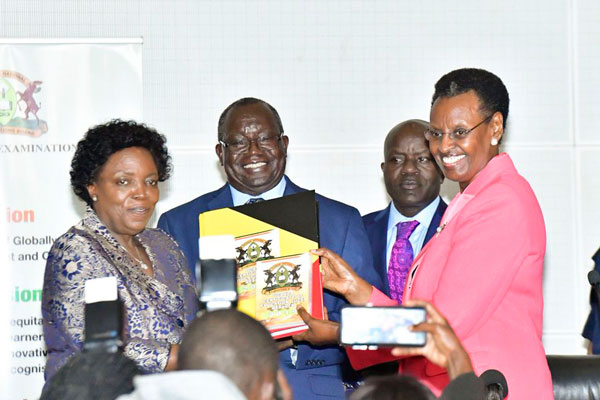
Compressed syllabus
Fortunately, the content has been reduced and either combined or removed. A lot of material taught at O’level currently was actually found to be A’ Level material.
Even the classroom arrangement will change. Instead of the whole class facing the teacher to copy notes, learners will be divided into groups to discuss, share ideas, and solver problems. The teacher will be a facilitator, observing the learners behaviour and filling in gaps from the framework of the topic being taught. The teacher assesses each student’s output and awards an assessment mark for every lesson. Learners who show excellence get three, average leaners get a two, and those needing remedial work get a one. Students needing remedial work will be immediately assisted.
“If you have not passed one level well; there is no reason to go for the next because the next topic builds on the first,” he says.
Does this mean that in the end no learner will fail?
“If it is efficiently done, yes, but at different levels of passing,” Muganga says.
Under the new curriculum, the teacher compiles each student’s mark for each topic for the whole term. This is technically called continuous assessment which culminates in integration of activity. At the end of the term, the school forwards each student’s term marks to the Uganda National Examinations Board (UNEB). This in-class assessment will comprise 20% of the assessment.
“That will push students to attend and do classwork and not wait for the current two hour exam and score distinctions from nowhere with no track record,” he says.
“This will deflate the pressure of examination orientation and aiming at graduation,” says Muganga, “You hear a lot about best students these days; but what can the best student do different?
“A student with a First Class degree is not any different; we have left quality and are busy chasing something deceptive.”
He says under the current curriculum, although each term has 12 weeks of study, up to 50% of that is spent on exam; the beginning of term, mid-term, and final exams.
“There is hardly any learning; teachers are teaching tests,” he says, “We are reclaiming the time spent o exams.”
Alele says the new approach is similar to what is already being used to assess students of French, Fine Arts, and Food and nutrition. But he worries about its system-wide use.
“Credibility of continuous assessment is a problem,” he says, “Some teachers might be bought off or influenced to exaggerate the learner’s marks.”
Still, even under the new curriculum, UNEB will at the end set the national exam which will comprise 80% of the marks.
So how will the new end of year UNEB exam be different from the current one? The questions are going to change. Learners will be asked to give a solution to a problem based on agreed internationally accepted processes of solving the problem. Learners will recommend a solution to a problem; they must show an understanding of how to solve the problem.
“This is what we have been crying for, that students should be creative and practical; now it will come automatically,” he says.
****
 The Independent Uganda: You get the Truth we Pay the Price
The Independent Uganda: You get the Truth we Pay the Price




I Think So
its very okay to have a changed curruculum because atleast now, children will be sure of what they are going to be in the future, thx
That’s not the aim of this curriculum
This is very fitting in this C21st. I very much support this move as this will make learning more practical thus equipping them with skills for independent living.
New curriculum brings lazziness to some students